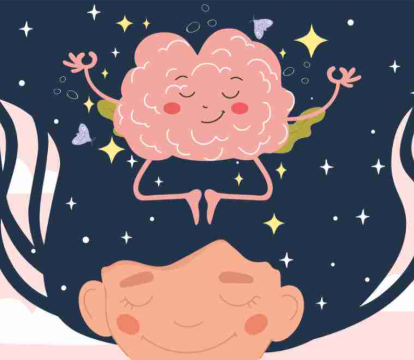Evenings can feel rushed, hectic, and sometimes overwhelming. By the time you finally crawl into bed, your mind might still be buzzing with thoughts of unfinished tasks, the next day’s responsibilities, or lingering stress. Establishing a calming bedtime routine can transform the way you sleep, making it easier to drift off peacefully and wake up feeling refreshed. The key is to create a series of gentle, intentional habits that signal to your body and mind that it is time to unwind.
Start by creating a soothing environment in your bedroom. Our surroundings have a profound effect on our ability to relax. Soft lighting, comfortable bedding, and a tidy space can instantly foster a sense of tranquility. Consider using a bedside lamp with warm light instead of bright overhead lighting. If you enjoy scents, a subtle touch of lavender or chamomile in a diffuser can encourage relaxation. The goal is to make your bedroom a sanctuary where your mind can release the pressures of the day.
The next step is to establish consistency. Going to bed at the same time each night helps regulate your body’s internal clock, which makes falling asleep and waking up more natural. Even if your schedule varies occasionally, aim to maintain a regular bedtime as often as possible. Pair this with a consistent morning routine, such as exposure to natural sunlight and light movement, to reinforce your body’s sleep-wake rhythm. Over time, these habits signal to your body that bedtime is approaching, allowing for a smoother transition from alertness to rest.
Incorporating gentle movement before bed can also help release tension. Activities such as stretching, yoga, or a calm walk can relieve physical stress while also preparing your mind for rest. Focus on slow, intentional movements, paying attention to your breath as you stretch. This combination of movement and mindful breathing encourages a sense of calm, helping the nervous system shift from a state of alertness to relaxation. Even a brief five-minute routine can have a noticeable impact on how peacefully you drift off to sleep.
Mindfulness exercises are another powerful tool for calming the mind before bed. Techniques such as deep breathing, progressive muscle relaxation, or guided meditation can help shift your focus away from stress and toward the present moment. Deep breathing is particularly effective because it slows the heart rate and reduces cortisol, the body’s stress hormone. Try inhaling slowly for a count of four, holding for four, and exhaling for four, repeating this cycle until your body and mind feel calmer. These small, deliberate actions can create a sense of control over your thoughts, making it easier to let go of the day’s worries.
Limiting exposure to screens in the hour leading up to sleep is another essential step. Smartphones, tablets, and computers emit blue light, which can interfere with the production of melatonin, the hormone that regulates sleep. If avoiding screens entirely is not feasible, consider using night mode settings or blue light filters. Alternatively, you could replace screen time with calming activities such as reading a light book, listening to gentle music, or journaling. Journaling allows you to transfer your thoughts from your mind onto paper, which can reduce mental clutter and make it easier to settle into a restful state.
Nutrition also plays a subtle yet meaningful role in your bedtime routine. Heavy meals, caffeine, and alcohol can disrupt sleep, while lighter snacks containing magnesium or tryptophan may promote relaxation. Herbal teas such as chamomile or peppermint can provide both hydration and a sense of calm. Pay attention to how your body responds to different foods and beverages in the evening, and aim to cultivate habits that support restful sleep.
Another helpful approach is to incorporate a ritual that marks the end of the day. This can be as simple as washing your face, brushing your teeth, and changing into comfortable clothing. Over time, these small actions become cues for your mind and body that the day is ending, encouraging a natural shift toward relaxation. Rituals offer a sense of stability and control, both of which are important when trying to calm a busy mind.
Music or soothing sounds can further enhance your bedtime routine. Soft instrumental music, nature sounds, or white noise can mask disruptive background noise and create a consistent auditory environment that signals sleep. Choose sounds that are gentle and predictable, avoiding anything with abrupt changes or sudden loud moments. The consistency of sound can help the brain associate it with rest, making it easier to drift off.
It is also important to cultivate a mindset of patience and self-compassion. Some nights, sleep may come easily, while other nights it may feel elusive. Instead of pressuring yourself to fall asleep immediately, allow yourself to rest and let go of expectations. Anxiety about sleep can actually make it harder to relax, creating a cycle of restlessness. By approaching bedtime with curiosity rather than judgment, you create space for genuine calm to develop naturally.
Finally, remember that bringing calm into your bedtime routine is not about perfection. It is about small, consistent steps that nurture relaxation and signal to your body that it is time to rest. Over time, these habits reinforce one another, creating a bedtime experience that is not only soothing but also deeply restorative. Whether it is adjusting your environment, incorporating mindful movement, limiting screen time, or practicing breathing exercises, each intentional action contributes to a sense of calm that carries into your sleep.
Establishing a calm bedtime routine is a gift you give yourself each night. It allows your mind and body to let go of the day’s stresses, preparing you for deeper, more restorative sleep. By cultivating an environment, habits, and mindset that support relaxation, you create a foundation for nights filled with peace and mornings that feel rejuvenating. With patience and practice, bedtime can transform from a rushed, stressful moment into a gentle, restorative ritual that nurtures both your physical and mental well-being.






